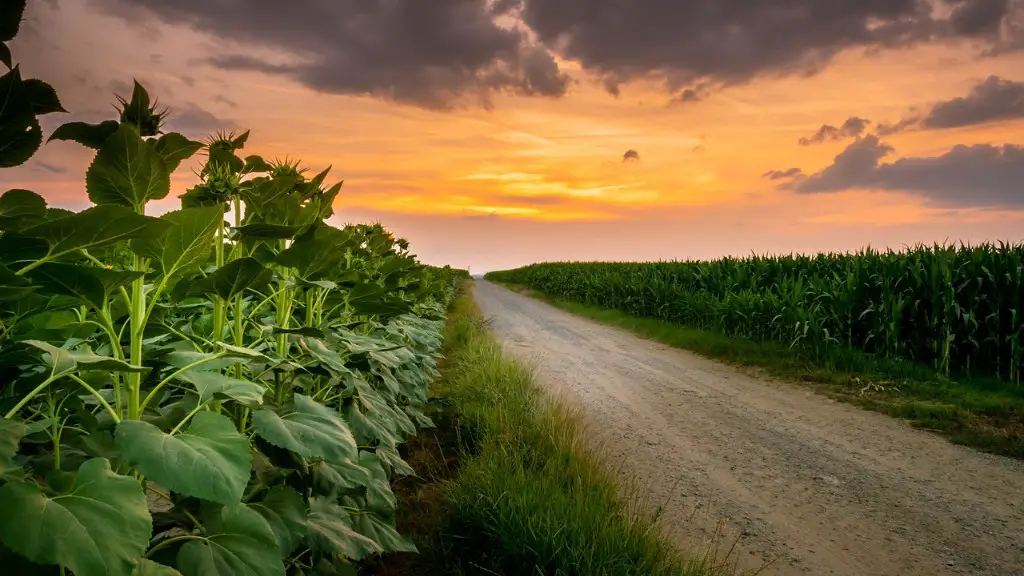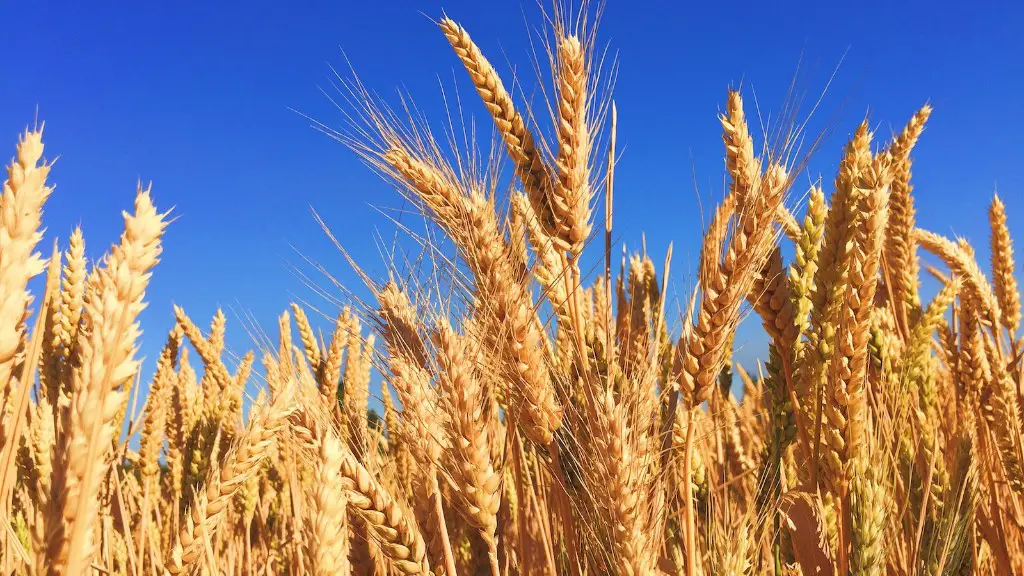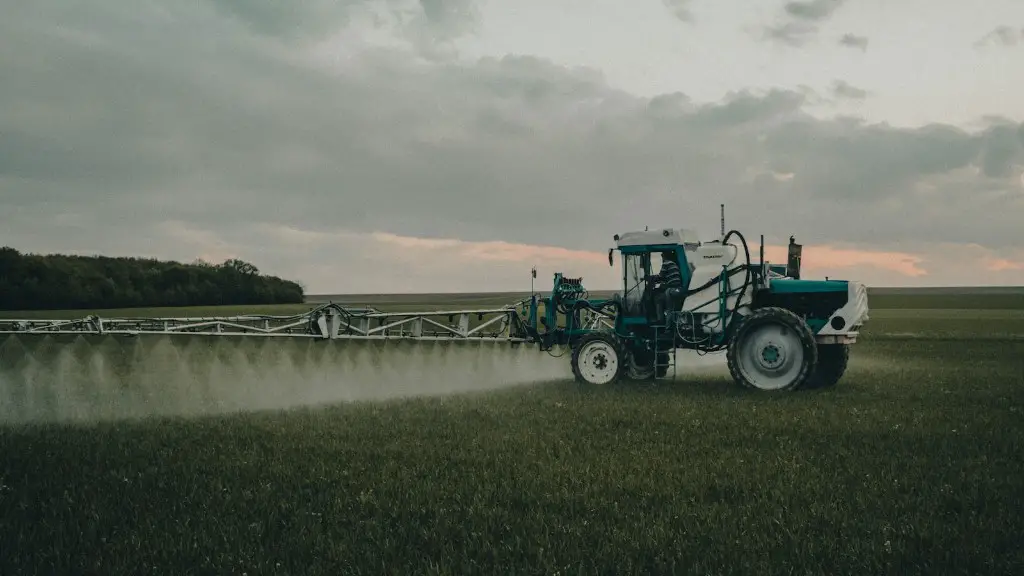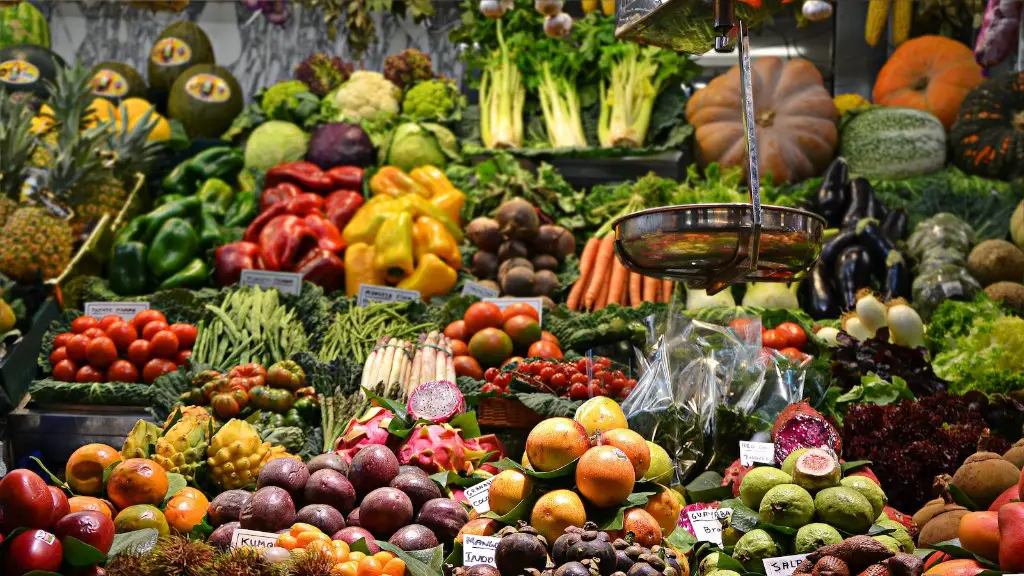In a world where the population is ever-growing and the demand for food is constantlyrising, sustainable agriculture is more important than ever. Sustainable agriculture isthe practice of farming in a way that protects the environment and conserves naturalresources. It is a way of farming that is environmentally responsible and that enablesthe farmers to produce food in a way that is economically viable.
Sustainable agriculture is important for many reasons. First, it is a more environmentallyfriendly way of farming. Sustainable agriculture practices help to reduce pollution,conserve water, and preserve soil. Additionally, sustainable agriculture is moreresource-efficient than traditional farming methods. It uses less water and fewerpesticides and fertilizers.
Another reason why sustainable agriculture is so important is that it is a more economicallyviable way of farming. Sustainable agriculture practices can help farmers save moneyon inputs and increase their overall profitability. Additionally, sustainable agriculturecan help to create jobs in rural communities.
Lastly, sustainable agriculture is important because it helps to ensure that we will haveenough food to feed the world’s ever-growing population. Traditional farming methodsare simply not sustainable in the long-term. If we want to be able to feed everyoneon the planet, we need to adopt
There are many reasons why sustainable agriculture is important. Some of the most important reasons include the following:
1. Sustainable agriculture is important for the environment. It helps to reduce pollution and soil erosion, and it conserves water.
2. Sustainable agriculture is important for the economy. It helps to create jobs and improve farmers’ livelihoods.
3. Sustainable agriculture is important for food security. It helps to ensure that there is enough food for everyone, now and in the future.
4. Sustainable agriculture is important for human health. It helps to produce safe and healthy food, and it can also help to reduce the spread of diseases.
What are 5 benefits of sustainable farming?
Sustainable agriculture has many benefits that make it a desirable option for farmers and consumers alike. One of the biggest advantages is that it reduces costs by preventing pollution and soil erosion, and by saving energy. It also promotes biodiversity and improves food production with less waste and public health.
Organic agriculture is a great way to protect against GMOs. Not only is it sustainable, but it can also guarantee that the agricultural produce is GMO free. This is important for both human health and the environment.
In addition, organic agriculture can make better use of soil and land. This is because it relies on natural processes, rather than chemicals and other artificial inputs. This can help to improve the quality of the soil and make it more productive.
Finally, organic agriculture can benefit the welfare of animals. This is because they are not subject to the same intensive farming practices that are used in conventional agriculture. This means that they have more space to roam and are not kept in cramped conditions.
How does sustainable agriculture help the economy
Over the last half century, agricultural TFP growth has been an important driver of poverty reduction, food security, and emission mitigation. It has supported economic growth and put money in farmers’ pockets, while also boosting rural economies. Agricultural TFP growth has helped to decrease land expansion and associated biodiversity loss, and has been a key factor in mitigating greenhouse gas emissions.
Sustainable agriculture is a type of agriculture that focuses on producing food in a way that is environmentally friendly. This includes using techniques that help preserve the earth’s natural resources, such as soil and water. Sustainable agriculture also benefits the environment by helping to maintain soil quality, reduce erosion, and preserve water.
What are 3 reasons why agriculture is important?
Agriculture is the main source of raw materials for many industries. It is also important to international trade, as countries that produce food exports can earn a lot of revenue. Agriculture also plays a big role in a nation’s development. It provides employment for millions of people and can help heal the environment. However, agriculture can also go hand-in-hand with war, as countries that produce food can be targets for invasion.
Sustainable agriculture is a great way to protect our environment, reduce erosion and natural resource degradation, improve air and water quality, increase biodiversity, and decrease carbon emissions. It is a win-win for everyone involved!
What are the four goals of sustainable agriculture?
The agricultural sector plays a vital role in protecting and enhancing the environment and natural resources. In addition to producing food, the sector also provides significant environmental benefits, including carbon sequestration, soil and water conservation, and biodiversity protection.
However, agriculture also has a significant impact on the environment, through land and water use, greenhouse gas emissions, and the use of pesticides and other chemicals. It is therefore essential that the sector is managed in a sustainable way, to ensure that it can continue to provide these essential benefits into the future.
There are a number of ways in which the sector can be made more sustainable, including reducing greenhouse gas emissions, improving water management, and increasing the use of precision agriculture techniques. In addition, it is important to provide sufficient financial rewards to farmers to enable them to continue production, whilst also contributing to the well-being of the wider community.
Sustainable agriculture practices are those that protect and conserve the natural resources on which farming depends, while also providing benefits for farmers and other stakeholders. Sustainable agriculture practices include:
• Rotating crops and embracing diversity: Rotating crops helps to break pest and disease cycles, and increases soil fertility. Crop diversity also helps to improve soil health and resilience to pests and diseases.
• Planting cover crops and perennials: Cover crops help to improve soil health by adding organic matter and protecting soil from erosion. Perennial crops are often more drought-tolerant and can help to improve soil structure and fertility.
• Reducing or eliminating tillage: Reducing tillage helps to protect soil from erosion and compaction. No-till or low-tillage systems can also help to improve soil health by preserving soil structure and increasing soil organic matter.
• Applying integrated pest management (IPM): IPM helps to reduce the need for synthetic pesticides and fertilizers, and can help to improve crop yields and quality.
• Integrating livestock and crops: Integrating livestock and crops can help to improve soil health and fertility, as well as provide other benefits such as pest control and income generation.
• Adop
What are the 3 P’s of sustainable agriculture
The triple bottom line is a way of thinking about business and sustainability that includes people, planet, and profits. The TBL dimensions are also commonly called the three Ps: people, planet and profits. We will refer to these as the 3Ps.
Well before Elkington introduced the sustainability concept as “triple bottom line,” environmentalists wrestled with measures of, and frameworks for, sustainability. The triple bottom line approach is a way of thinking about business and sustainability that includes people, planet, and profits. The three Ps are also commonly referred to as the TBL dimensions.
When agricultural operations are sustainably managed, they can have a number of benefits for the environment. Sustainable management practices can help to preserve and restore critical habitats, protect watersheds, and improve soil health and water quality. WWF works to identify and implement better management practices for agriculture in order to help promote these environmental benefits.
What are the 5 main components of sustainable agriculture?
There are some key differences between sustainable farming and conventional farming practices. Sustainable farming systems are designed to be more ecologically sound, using practices that help protect and restore natural resources. Conventional farming systems are typically more focused on maximizing production and profitability, even if that means using methods that can degrade the environment.
Crop rotation, intercropping, and growing cover crops are all great ways to promote healthysoil and improve pest control methods. These practices also help to prevent soil erosion, replenish nutrients, and minimize weeds. Managing irrigation to reduce runoff is another great way to prevent soil erosion.
How do you explain sustainable agriculture
In recent years, sustainable agriculture has become an increasingly important topic of conversation and debate. As the world’s population continues to grow, it is becoming increasingly important to find ways to produce food that are both environmentally friendly and sustainable. There are a number of different approaches to sustainable agriculture, but they all have one common goal: to create a system that can be sustained indefinitely into the future.
Agriculture is the main source of raw materials for many industries, such as cotton and jute fabric, sugar, tobacco, edible and non-edible oils. Many other industries, such as processing of fruits and vegetables and rice husking, also get their raw material mainly from agriculture. This shows that agriculture is a very important sector of the economy and should be given due importance.
What are two reasons why agriculture is important?
Agriculture is vital to society in many ways. It provides food for people to eat, livelihoods through jobs, and habitat for animals and plants. It also provides raw materials for food and other products, and builds strong economies through trade.
Soil fertility is an important factor in crop production. It can support crop production by providing the necessary nutrients and water for plant growth. Additionally, soil fertility can also improve the donwability of the soil, making it easier for crops to take root.
Final Words
There are a number of reasons why sustainable agriculture is important. First, sustainable agriculture is necessary in order to preserve our natural resources. Agriculture is responsible for a large percentage of water consumption and land use, so it is important that it is done in a way that is sustainable. Second, sustainable agriculture is important for the economy. It is estimated that the agricultural sector contributes to about 10% of the world’s GDP, so it is important to ensure that this sector is as efficient and productive as possible. Finally, sustainable agriculture is important for food security. With the world’s population projected to reach 9 billion by 2050, it is essential that we produce enough food to feed everyone in a sustainable way.
Sustainable agriculture is important for a number of reasons. First, it is an environmentally friendly way of farming that doesn’t deplete the soil or use harmful chemicals. Second, it is a more efficient way of farming that actually requires less water and energy than traditional farming methods. Third, it is a more humane way of farming that cares for the welfare of animals and workers. Finally, it is a more sustainable way of farming that can be sustained over the long-term.





